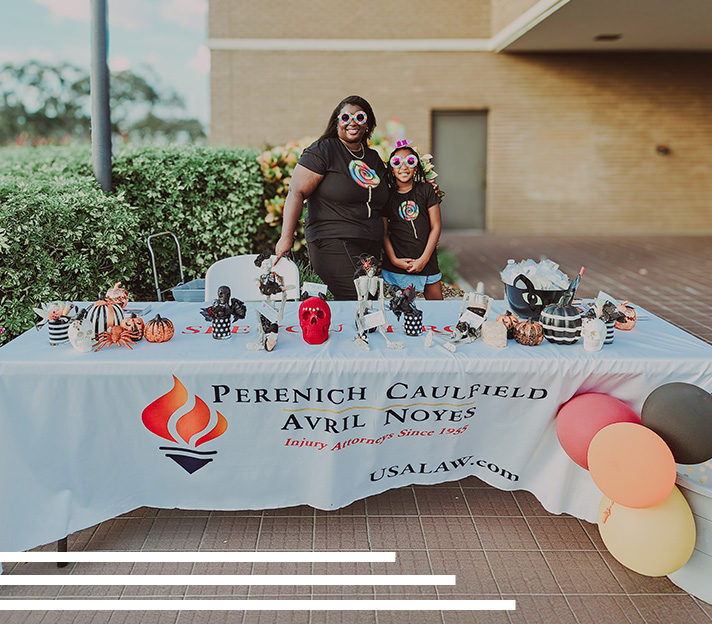How Much is My Personal Injury Case Worth?
It is understandable to want to know how much a personal injury case is worth. After you are injured because of an automobile accident, slip and fall, or another personal injury incident, you might experience financial hardship.
Being out of work can make paying bills and living expenses difficult. Many accident victims use their savings to make ends meet after an accident, but the savings account is soon gone.
How Can a Personal Injury Lawyer Maximize the Value of Your Personal Injury Case?
The first step is to investigate the cause of your injury to identify each party who is liable for your damages.
To maximize your recovery, a personal injury lawyer will:
- Investigate your injury to gather evidence proving other parties caused your injuries
- Work with your physicians to document your injuries and damages
- Consult expert witnesses to assist in valuing your damages
- Aggressively negotiate with insurance companies for the maximum value of damages
Lawyers pursue every legal cause of action against all liable parties. They also pursue all types of damages, including punitive damages, if your case justifies punishing the defendant for gross negligence or intentional acts of misconduct.
What Factors Affect the Value of Economic Damages in a Personal Injury Case?
If the other parties are entirely responsible for the cause of your injury, you are entitled to full reimbursement for economic damages. These damages are the monetary losses and out-of-pocket expenses related to the accident and your injury.
A law firm will assess factors including:
- The cost of your medical treatment, including rehabilitative therapies
- The total of all medical bills before discounts for health insurance contracts
- The loss of income because you could not work while recovering from injuries, including lost wages, benefits, commissions, bonuses, and other forms of income
- The amount of any property damage associated with the accident or injury
- The out-of-pocket costs for medications, personal care, in-home nursing care, travel to medical appointments, etc.
Careful documentation of all expenses and costs increases the value of your personal injury claim. You cannot receive reimbursement for financial losses unless there is proof of the cost.
The insurance company will try to use the discounted cost for medical bills. The discounted cost is after the amount “written off” by the medical provider because of a contract with your health insurance company. However, a law firm will maximize recovery by ensuring that they use the billed amount.
Also, the insurance company may deny compensation for lost benefits at work. However, it is important to fight for that money because you would have received those benefits had you not been injured. These benefits could include bonuses, paid time off, holiday pay, and retirement contributions.
You May Be Entitled to Compensation for Future Damages
If you sustained a permanent injury, the value of future damages should be included in a personal injury settlement. When a permanent impairment or disability prevents you from returning to work, you will incur a future loss of income. Even if you can return to work, you may experience diminished earning potential.
In addition to the loss of future income, you may have ongoing medical expenses, personal care, or long-term nursing care. The cost of ongoing care could total millions of dollars for a young adult who is totally disabled from an accident.
Medical experts, financial professionals, and economists may assist us in calculating the value of future damages. Experts use a variety of factors to determine how much money you would have earned in the future had it not been for the accident. They also assist in estimating the cost of future medical and personal care.
Calculating Pain and Suffering Damages
Accident victims are also entitled to receive compensation for their pain and suffering (non-economic) damages. However, it is challenging to place a price on a person’s suffering after an accident and injury.
Generally, insurance companies use a “multiplier” to calculate the non-economic. The severity of your injuries and other factors determine the multiplier, which ranges from 1.5 to 5.0.
That number is multiplied by your economic damages to calculate non-economic damages.
Factors that could increase the value of the multiplier include:
- Longer recovery periods
- Permanent scarring, disability, impairment, and disfigurement
- Suffering from diagnosable conditions caused by the experience, including PTSD, depression, anxiety, etc.
- Significant changes in your quality of life
- Being unable to enjoy the same things you did before the accident
- Not being able to have intimate relations with your partner
- Negative impacts on your relationships with friends and family members
The more significant the impact on your life, the higher the multiplier. Therefore, it is prudent to look at factors such as your overall health, age, pre-existing conditions, and lifestyle before the injury. It helps to develop a narrative that highlights the extent of the disruption and negative impact the accident and injury had on your everyday life.
The goal is to emphasize how the accident and injury changed your life to maximize the value of your damages.
The Impact of Comparative Negligence on the Value of Your Personal Injury Case
If you were partially at fault for the cause of your injury, it could affect how much your personal injury claim is worth. However, Florida’s modified comparative negligence law does not necessarily bar you from recovering compensation – so long as you do not share most of the blame.
The money you receive will merely be reduced by your level of fault. For example, suppose a jury finds that you contributed to the cause of your car crash because you were speeding. They assign 20 percent of the blame for the collision to you. The jury awards you damages totaling $250,000.
Because you were 20 percent at fault, the other driver is only responsible for 80 percent of your damages. Therefore, the court enters a judgment against the defendant for $200,000 ($250,000 minus 20 percent). But if you were 51% or more at fault instead, you would be barred from recovering compensation under Florida law.
Insurance companies use contributory fault allegations to reduce the value of accident claims. Therefore, if a claims adjuster tries to question you about the accident or suggests you could be partially to blame, it is wise to seek legal counsel before going any further with your insurance claim.
Are you wondering how much your personal injury case is worth? If so, contact a personal injury lawyer in Clearwater. We are passionate about fighting for the rights of injury victims and their families.

We treat you like family.
If you can’t come to us, we’ll come to you.
Representing Accident Victims in Tampa Bay since 1955



-
“Friendly knowledgeable and kept me informed about my case. Any offer, bill or question was readily answered. Would definitely recommend and refer people to Bryan Caulfield and his team!!”- Betty B.
-
“Mrs Bryant works her butt off to make sure you get what is do to you in medical and beyond! They won’t take your case if they don’t feel you haven’t been wronged.”- Christine R.
-
“Working with Mark Perenich on my auto injury case was an absolute game-changer. From the very beginning, he brought a level of professionalism, expertise, and care that immediately put us at ease.”- Kerry B.
-
“Lorrie and Allyson are phenomenal. I highly recommend them to anyone. It seemed like a never ending journey but I can’t thank them enough for diligently fighting my case with the greatest integrity, support and prayers.”- Former Client
-
“From the first day we met this law group I felt very comfortable and knew we would be well taken care of. This was our first experience filing for SSD, and was not disappointed. The lawyers are awesome and very professional.”- Shari J.
-
“Very nice they worked with you. Never ignored me with my case. Always on top to work with you. Thank you so much for all that you have done to help me! Very highly recommend.”- Margarita O.
-
“My appointed attorney was Jacqueline, Bryant. She is very compassionate about her client and work. When it comes to negotiation, she's a Beast and she gets the job done.”- Alaina J.
-
“What was particularly awe inspiring was the recall of facts and testimonies from medical personnel that Para Legal Ms. Josephine Elizabeth Angelo was able to make. Her memory and acumen for detail was admirable.”- Maylisa Y.
-
“Wonderful, impeccable, personalized, authentic, truthful, honest experience. Rare, real, and human firm.”- Sheryl G.


We’ve been proudly serving Clearwater, St. Petersburg, and the Tampa Bay area for generations. As the first personal injury law firm in Clearwater, our dedicated legal team brings over 300 years of combined experience to each and every case. If you’ve been injured and need support, please reach outtoday for a free consultation, we are here to help you.















